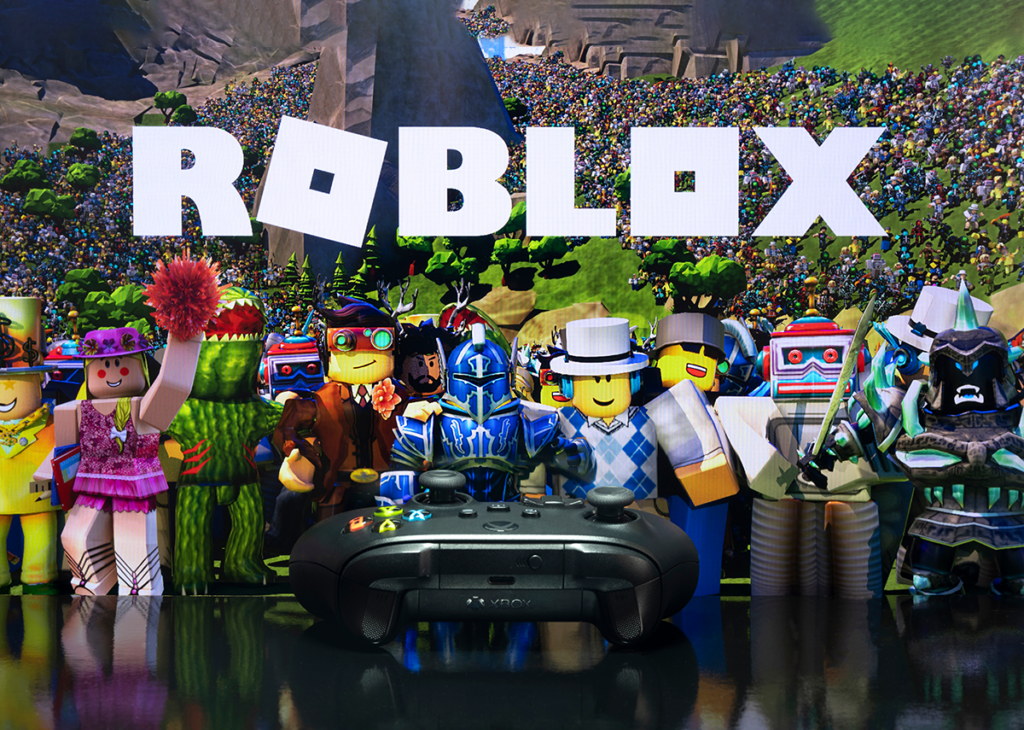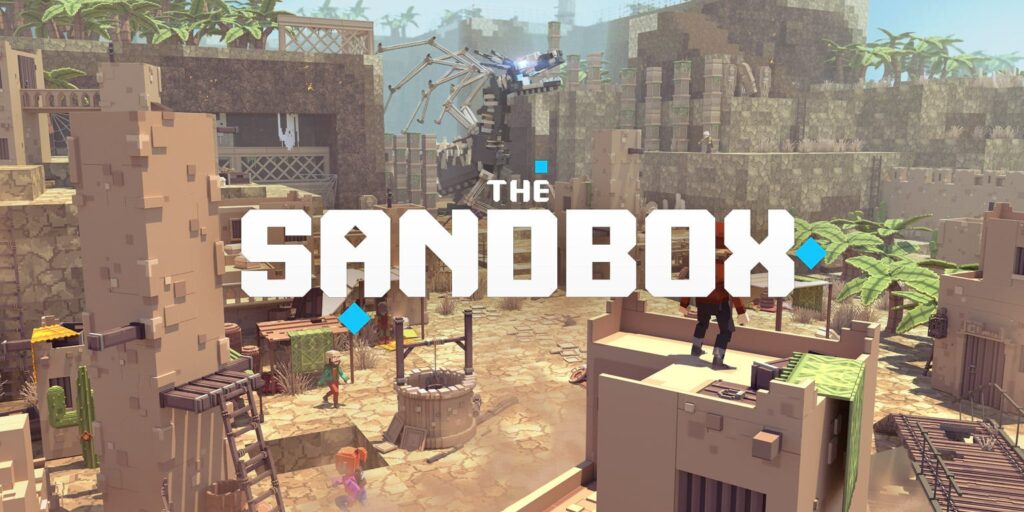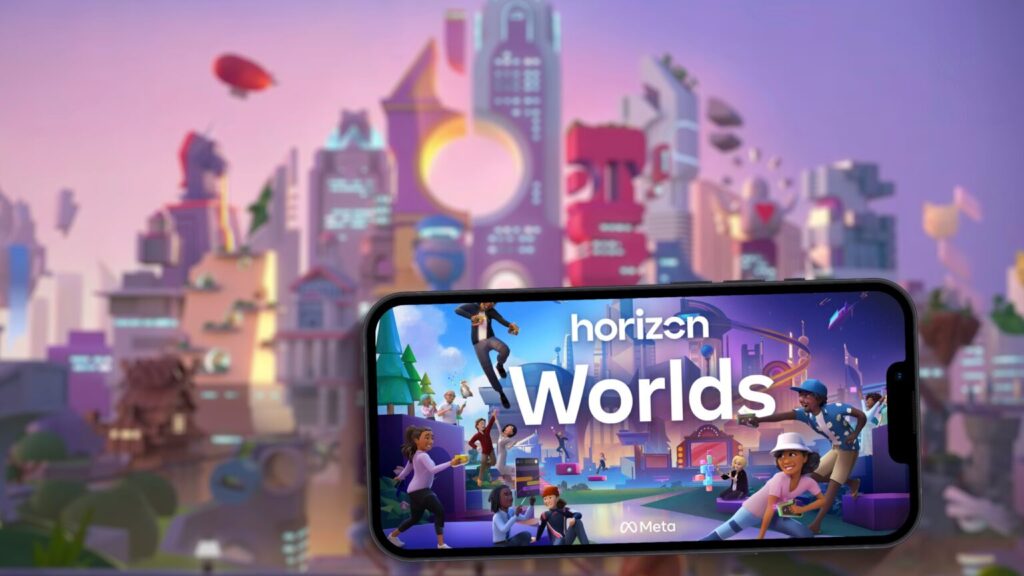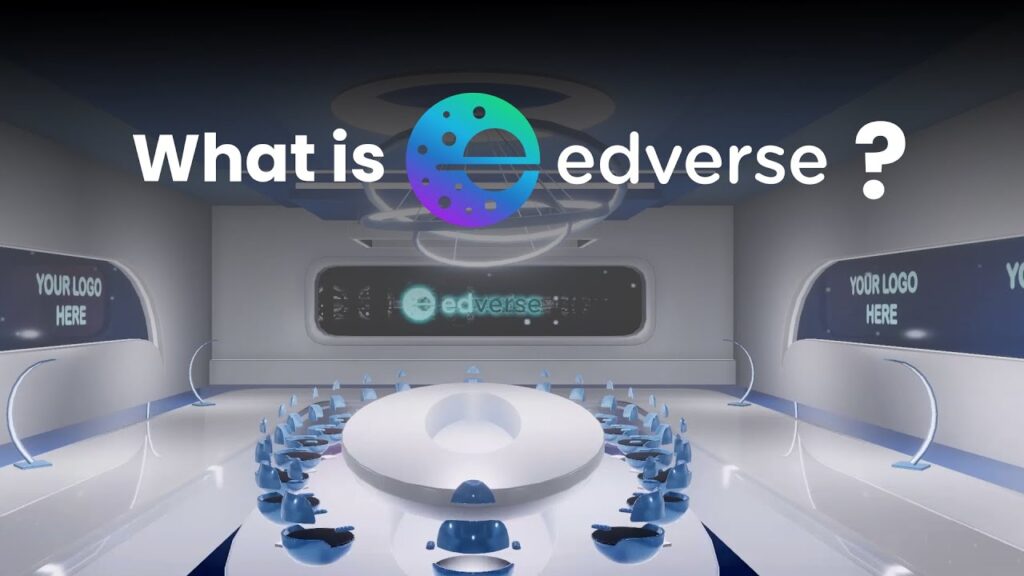The Metaverse provides several investment alternatives for businesses exploiting the decentralized world. This article discusses the role of decentralized platforms in Metaverse enterprises.

As the Metaverse evolves from a concept to an actual application, organizations are more interested in understanding how to use it to their advantage.
It is already widely known that many brands aggressively embrace the Metaverse to chart their course in the digital realm.
Gucci, Coca-Cola, Balenciaga, H&M, Nike, Warner Bros., and other big companies have collaborated with metaverse initiatives such as Roblox, Tafi, and Fortnite to create new opportunities for marketing, branding, global reach, and revenue generation.
The metaverse mania influences businesses of all sizes, particularly those prioritizing early digital transformation.
Enterprises are figuring out how to take advantage of the Metaverse’s potential, what the output will be, and if they should build their Metaverse or use current Metaverse platforms.
To assist organizations, this insight presents a visual picture of how they might use metaverse capabilities to their advantage.
Understanding Metaverse Enterprises
An enterprise metaverse is a metaverse that provides prospects for corporate growth. Enterprise metaverses are immersive virtual places where firms can sell digital products and services.
They offer new digital options for businesses to reach global audiences, promote engagement, build meaningful connections, establish leadership prospects, train staff, and more.
An enterprise metaverse appeals to millennials and Gen-Xers because it is a cutting-edge, sophisticated virtual platform.
Meta works on one type of Metaverse, whereas other software-focused groups develop several metaverse environments.
For example, Decentraland is a virtual real estate metaverse for buying and selling land; IMVU provides social networking, shopping, and hangout chances; and Roblox allows users to create virtual worlds.
Similarly, enterprises of all sizes can construct specialized metaverses to power their activities on multiple levels.
Fashion companies, lifestyle brands, IT organizations, real estate firms, and other central and small enterprises might look for creative and cutting-edge commercial opportunities in the Metaverse.
Enterprise metaverses are a work in progress. As they gain popularity, they will change to create brand uniqueness. Enterprises may make metaverses work for them in the most rewarding way by customizing them.
Marketplaces within metaverses will become essential sources of revenue. New digital services and goods forms will join the market, with the quest for worldwide clients driving economic growth.
Opportunities in the Metaverse For Metaverse Enterprises
According to experts, the Metaverse will intensify the trend of user experience customization driven by mobile devices and the Internet.
The Metaverse is a more sophisticated virtual environment for consumers to enhance their in-person experiences.
Businesses are aware that the Metaverse could eventually overtake the Internet as the most popular digital platform for consumer-business interaction because it is widely thought to be the next generation of the Internet.
Businesses with a long-term view must monitor and assess changing consumer behavior patterns to prevent delays in metaverse adoption.
With no obvious beginning point, the metaverse shift will be gradual and ongoing.
The Metaverse is a reality and will completely change how consumers interact with companies.
Given present metaverse capabilities, let’s examine the potential benefits of a business metaverse.
- Reach a worldwide audience
- Establish valuable relationships
- Encourage involvement
Reach a Worldwide Audience
Perhaps the most alluring aspect of the Metaverse for corporations is its potential for global reach.
Thanks to the Internet, businesses have made great strides in breaking down geographical borders and entering new markets. Nonetheless, there is a gap between virtual and physical experiences.
Selecting a product based on pictures and videos is not the same as going to a store and personally testing something.
Through the vast creation of immersive and interactive 3D experiences, metaverse tools and technology can close this gap.
Similar to a regional corporation, this will enable businesses to contact clients worldwide and significantly influence them.
Like any local business, potential customers from around the globe can easily access the Metaverse to study goods and services more realistically, get personalized, and establish a closer connection with the company.
Establish Valuable Relationships
Every business aims to improve its connections with clients, potential clients, and other companies.
By giving digital contacts a sense of realism, a corporate metaverse encourages the development of deeper connections. Businesses and customers may engage, communicate, and participate in new ways.
Businesses can use the Metaverse to monitor customer’ continuous wants and modify their experiences to meet those needs better.
Through immersive 3D virtual worlds, enterprise metaverses may provide clients with entirely configurable and hyper-scalable experiences without being limited by technology or architectural restrictions.
Encourage Involvement
Like social networking and e-commerce platforms, the Metaverse is an innovation that seeks to promote robust customer-business communication for opportunities that benefit both parties.
The goal of metaverses is to encourage new kinds of interaction by using tactics like;
- Avatar customization
- instantaneous communication.
- Features of e-commerce
- Integrated payment
- Self-sovereign identity verification to safeguard private information
- Opportunities for trading, purchasing, and selling NFTs
- a cryptocurrency-powered global economy.
Next, let us see the role of decentralized platforms in Metaverse enterprises.
The Role of Decentralized Platforms in Metaverse Enterprises
Some of the roles of decentralized platforms in Metaverse enterprises include;
- Security and privacy
- User empowerment
- Standardization and interoperability
- Censorship resistance
- Economic opportunities
- Community governance
Security and Privacy
Users of the metaverse benefit from increased security and privacy thanks to decentralized systems.
Decentralized solutions reduce the risk of significant data breaches or unauthorized access by preventing user data from being concentrated in a single central authority.
Users can restrict the exposure of sensitive data by controlling how their personal information is shared.
User Empowerment
People have more influence over their virtual experiences because of decentralized platforms. People own and manage their identities, assets, and data in a decentralized metaverse.
They can interact with people, produce and alter content, and retain the value acquired in the Metaverse.
Standardization and Interoperability
Decentralization encourages open standards adoption and interoperability. It makes it possible for virtual worlds, platforms, and apps to communicate and interact with each other seamlessly.
The ability for users to move their identities and assets between metaverse zones makes the ecosystem more varied and cohesive.
Censorship Resistance
Censorship and arbitrary control are less likely to occur in a decentralized metaverse. Conventional centralized systems can selectively implement policies, restrict user expression, and manage content.
Decentralized metaverses allow for more open participation without politicization because governance and decision-making processes are dispersed.
Economic Opportunities
In the Metaverse, decentralized platforms create new opportunities and economic models. Users can participate in virtual markets, earn and sell digital items, and profit from their creativity and talents.
By removing middlemen and facilitating peer-to-peer transactions, decentralized finance (DeFi) principles can create a more accessible and equitable economic environment.
Community Governance
People can impact the Metaverse’s laws, rules, and advancement in decentralized metaverses.
Users can influence the Metaverse’s course and development through decentralized governance systems to better suit their shared values and interests.
How Enterprises Can Use The Metaverse
Depending on their company objectives, customer portfolio, and business type, enterprises can use metaverses for any or all of the following purposes.
- Gamification
- Content distribution
- Sponsorship and event management
- Digital marketing
Gamification
Many businesses are using gamification for staff training and customer satisfaction. By boosting engagement, gamification enhances employee retention and customer loyalty.
Businesses already use mobile apps to gamify their customers’ experiences, but the Metaverse will advance gamification.
Campaigning, skill acquisition, staff training, loyalty programs, learning, and entertainment can all benefit from metaverse gamification.
Content Distribution
The Metaverse will provide a more diverse and efficient delivery of content. Soon, things that are today limited to text, images, and videos will become more graphically complex and real-time.
Perhaps a real-time demo powered by a digital counterpart will replace a taped product demo.
How content is delivered or consumed will be further improved by the extent of personalization, including time preference, language preference, avatar personalization, democratization of content, and so forth.
Sponsorship and Event Management
The Metaverse will undoubtedly transform enterprise conferences and events. As a platform, the Metaverse may combine the greatest aspects of both online and live events.
With features like 3D immersive platforms, NFT-powered registration and ticketing, live streaming, customizable avatars, worldwide networking, and audience participation, it can provide virtual event solutions that satisfy the demands of modern hybrid events.
Livestreamed presentations are just one aspect of metaverse virtual events.
To present feature-rich events that delight the audience with an integrated event experience, they integrate technologies like blockchains, NFTs, holograms, artificial intelligence, 3D designing, digital twinning, and cryptocurrencies.
A customized event atmosphere is offered to guests through 3D virtual venues, networking rooms, live or recorded webinar streaming, chat tools, picture booths, dApps customized avatars and NFT tokens.
Digital Marketing
Any platform that can draw users eventually becomes a marketing tool; the Metaverse is no exception. The Metaverse will provide digital marketers with more creative freedom.
But it’s too early to say what digital marketing in the Metaverse will entail. Advances in digital marketing for the Metaverse will continue to evolve—a process that has already started.
Nowadays, marketers can access advertising options through metaverse platforms like Fortnite and Roblox, which are impossible in the real world.
Digital marketers may use the Metaverse to engage people in engaging conversations, strengthen relationships, increase exposure, and enhance engagement marketing.
However, there are drawbacks, like confirming ownership of digital assets and intellectual property. NFTs can address this to a significant degree. Security concerns will also need attention.
However, marketing in the Metaverse will be profitable because:
- It will draw audiences from Gen Z and millennials in a unique way.
- Metaverses may accommodate audiences of exponentially larger sizes.
- Enterprise metaverses allow influencers to create more realistic connections with their followers; they will be an excellent platform to support the merging trend of influencer marketing.
Let us see some Metaverse platforms that help businesses thrive in the Metaverse.
Metaverse Platforms That Aid Businesses
Some Metaverse platforms that support the growth of businesses in the virtual world are;
- Fortnite
- Adidas Metaverse
- Nike Metaverse
- Uplands
- Roblox
- The Sandbox
- Horizon worlds
- Edverse Metaverse
Fortnite

Players’ and the entertainment industry’s enjoyment of Fortnite has been dramatically enhanced by the inclusion of ‘Metaverse’ into the story.
As a Metaverse platform, Fortnite satisfies many of the prerequisites for a virtual environment.
Users can explore the Fortnite Metaverse’s various environments and play through multiple game modes.
Similarly, users of the current video game platform can use the social features of the network to meet new people worldwide.
Additionally, users can join as customizable avatars that blend well with the different settings and “maps” the developers frequently produce, just like many other important Metaverse platforms.
Adidas Metaverse

Adidas’s decision to introduce its own Metaverse platform is not surprising, given the numerous well-known brands that have indicated interest in joining the Metaverse.
Their ‘Into the Metaverse’ campaign, which introduced virtual sneakers and other avatar-specific clothing, catalyzed it all.
Eventually, this virtual apparel appeared at a Decentraland-planned ‘Fashion Week’ event, leading to a crossover.
Additionally, Adidas and Bored Ape Yacht Club have partnered to produce collector’s items that will be offered for sale in the Metaverse virtual showrooms.
Adidas plans to work with Decentraland to enable customers to create virtual twins of their favorite items in addition to the immersive experiences and limited-edition wearables on their Metaverse platform.
Nike Metaverse

Nike is another clothing company that has become more well-known because of its Metaverse platform. They started their foray into virtual worlds when they joined RTFKT studios.
They were able to introduce digital shoe collections as a result. Skin customization is available for these digital replicas of their limited-edition sneakers.
Customers who want to purchase in the Metaverse can access their portal and peruse their products in their virtual splendor.
Some of their other initiatives are also displayed in their showroom, like the ARK Genesis Hoodie, which communicates with the avatars of its viewers.
Additionally, Nike gives them a physical hoodie that completely personifies the Metaverse by combining the digital and the actual worlds.
Uplands

Similar to Decentraland, Upland is another Metaverse platform that has sparked controversy in the community due to its emphasis on virtual property and real estate.
Its web browser version or smartphone app allows users to buy selections from the cities of their choice.
There is a marketplace where people can communicate whether they want to sell or trade their property.
Upland anticipates mini-games for its clients to enjoy in addition to commercializing virtual properties in a Metaverse setting.
These brief games take place in the virtual environment of the platform and give explorers “treasures” as rewards.
Roblox

Among online users and members of virtual communities, Roblox is undoubtedly one of the most well-liked Metaverse platforms.
It has undergone many years of development and work and keeps introducing new features and services for its customers.
Millions of people use it daily, by the way. It’s reasonable to say that this is one of the biggest Metaverse platforms, with over 200 million members logging in for hours each month.
With so many individuals looking for games and social activities on its Metaverse platform, Roblox’s community has grown considerably.
That’s precisely what Roblox has done: settle into the entertainment industry with its opportunities and activities.
Whether you like shooters, RPGs, combat games, or even racing and conquering hurdles, you can expect to have your hands full of games on their platform.
Because Roblox can host both single-player and multiplayer games, it significantly emphasizes social ties.
People often encourage their friends to play with them, and multiplayer games improve the online communication experience on a Metaverse platform.
Roblox offers cross-platform compatibility and virtual reality capabilities in addition to the potential of multiplayer gaming.
Depending on the gear and system they connect with, this guarantees users an immersive experience.
The Sandbox

The Sandbox is a community-driven Metaverse platform that lets individuals engage with the economy through blockchain technology. It has a ‘builder’ mode, a game mode, and even a marketplace.
Additionally, users are responsible for producing assets, creating new experiences, and making money from them.
Their digital token, ‘SAND,’ used for buying and selling in the marketplace, powers their economy.
Users can produce various voxel-formatted items for the Sandbox Metaverse using the ‘VoxEdit’ tool.
Horizon Worlds

Since its launch, the Metaverse platform Horizon Worlds, developed by Meta, has used VR headsets and real-life virtual experiences.
This is because Meta’s platform, with all of its visuals and audio fidelity, has been widely viewed through Facebook’s Quest headsets.
Like many other Metaverse experiences, Horizon Worlds invites users to engage with the platform’s economy by offering creator mode options.
Individuals can play games, go to events, and use or read content created by similar people.
There is a lot to accomplish on Facebook’s official version of the Metaverse because of the growing environment and creative tools.
Edverse Metaverse

Through the creation of a dynamic ecosystem that transcends geographical boundaries, the Edverse metaverse platform enables users to interact, collaborate, and grow within a shared virtual environment.
It is a significant online learning hub that promotes immersive education. It also provides a flexible venue for virtual meetings, encouraging connections and community growth.
Edverse offers a scalable solution to increase involvement and cooperation for organizations of all sizes, from startups to major corporations.
It’s where event planners can provide life-changing events, entrepreneurs can flourish, and educators can unleash their special teaching abilities.
For anyone looking to use the virtual world’s potential, the Edverse metaverse is the ideal setting since it fosters innovation, connections, and limitless possibilities.
Summary
In metaverse enterprises, decentralized platforms promote user autonomy, privacy, security, and interaction.
It creates a more diverse, inclusive, and user-focused online space where individuals can freely express themselves, work together, and find new possibilities.
Maximizing the utilization of metaverse infrastructure is crucial, even though complete decentralization is not achievable for all elements.
